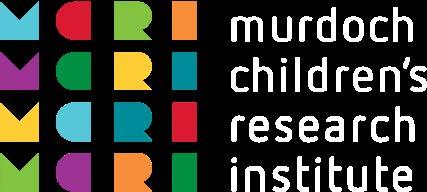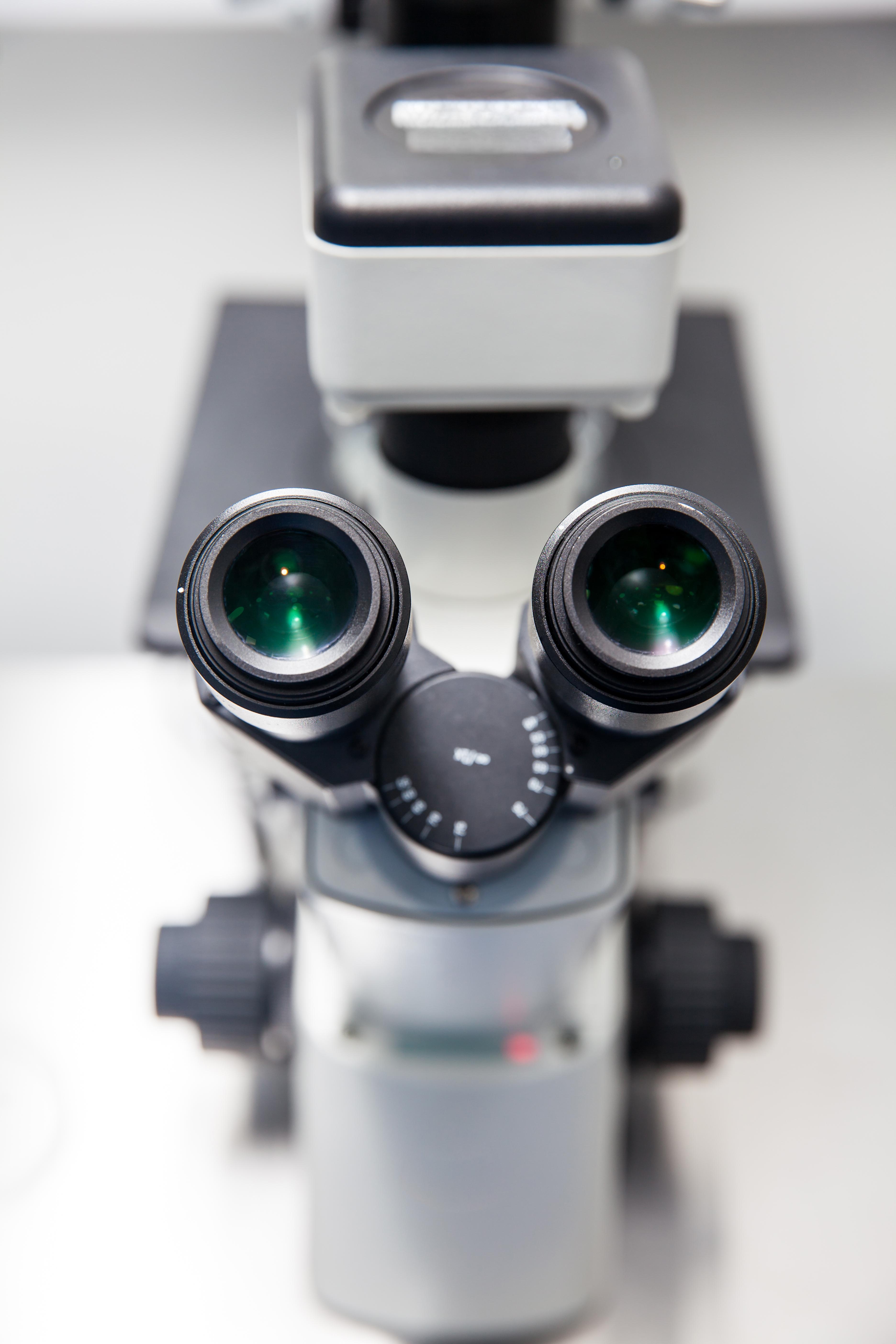




Year 1 Impact Report




On behalf of everyone at Murdoch Children's Research Institute (MCRI), we extend our gratitude for your generous support of the Decoding Broken Hearts research program. Your commitment to advancing paediatric cardiac research is making an extraordinary impact, enabling significant progress in our first year of collaboration with Gladstone Institutes.
The achievements detailed in this report are just the beginning of what we believe will be transformative research for children with heart disease.
This progress would not be possible without the vision and generosity of our donors. We also acknowledge the leadership of MCRI’s Global Advisory Board, whose dedication to this initiative has helped unite the expertise needed to make this groundbreaking research possible.
Together, we are making a difference for children and families worldwide. Thank you for being part of this journey.
Yours sincerely,

Professor Kathryn North AC Director, Murdoch Children’s Research Institute

Decoding Broken Hearts is a groundbreaking collaboration between Murdoch Children's Research Institute (MCRI) in Australia and Gladstone Institutes in San Francisco.
This report highlights the significant progress made in developing cutting-edge technologies to treat childhood heart disease more effectively.
With your generous support, our researchers are advancing their work in stem cell technology and artificial intelligence to understand and treat the underlying causes of congenital heart disease.
Congenital heart defects affect approximately 40,000 babies born in the US each year. That’s one child every 15 minutes.

Image above: Research Associate Tsion Abay works with a Fusion Cell Sorter in the Flow Cytometry Core room at Gladstone Institutes.
Image next page: Stem cellderived heart cells with their characteristic striped pattern that is formed by its beating units, the sarcomeres, as well as its nuclei in blue.
Credit: Dr Antonia Zech (Heart Regeneration and Disease groups –Prof Enzo Porrello and Prof David Elliott).
Congenital heart defects remain the most common birth defects worldwide, affecting one in every 100 live births.
For children with heart failure, treatment options are limited:
•
•
• Heart transplants are constrained by donor availability
Transplant recipients face poor medium-to-long-term survival rates. Lifelong immunosuppression diminishes quality of life.
"Transplantation is not a cure, it's really a last resort."
- Professor Enzo Porrello, MCRI Director of Stem Cell Medicine

Decoding Broken Hearts leverages two revolutionary technologies:
MCRI's Advanced Stem Cell Technologies
Building on our pioneering 2017 breakthrough, MCRI researchers can now produce thousands of miniature human heart tissues from stem cells weekly. These 3D models accurately mimic the human heart in laboratory conditions, enabling unprecedented experimentation at scale.
Gladstone Institutes' AI Capabilities
Cutting-edge artificial intelligence systems analyse enormous datasets generated by stem cell experiments to identify the underlying causes of heart disease and predict how individual patients might respond to specific therapies.
With your support, this first year marked a period of significant research advancements and achievements for the Decoding Broken Hearts team.
Uncovering the molecular drivers of childhood heart failure
Analysed heart tissue from 52 children with dilated cardiomyopathy - the most common cause of heart failure in children to identify molecular changes that may help explain how the disease develops.
Building the most comprehensive heart protein map
Discovered and measured more than 50,000 phosphorylation sites on 6,330 heart proteins, creating the most detailed map of its kind to date.
a new model for precision cardiac research
Developed a cutting-edge research approach that links real patient data with advanced lab models, including stem cells and miniature heart tissues, to help identify and test new treatment targets.
Expanding global access to rare heart tissue samples
Established global collaborations with biobanks to access additional heart tissue samples from both children and adults with dilated cardiomyopathy.
Laying the foundation for advanced heart tissue models
Generated stem cell models of dilated cardiomyopathy, laying the groundwork for future disease modelling and creation of complex 3D miniaturised heart tissue.
Bridging AI and stem cell technologies
Prepared the team's first collaborative publication highlighting findings from the integration of AI and stem cell technologies.
Investing in global research talent
Secured generous funding for a travel scholarship program to support researcher exchanges between MCRI and Gladstone Institutes.
Received a prestigious $5 million AUD NHMRC Synergy Grant, with a portion providing significant enabling support for this project over the next five years.
Decoding Broken Hearts has garnered significant media attention, raising awareness about childhood heart disease and showcasing the potential of our innovative approach
Public engagement has been crucial in building awareness and support for our research, helping to attract additional funding and collaborative opportunities.
Professor Enzo Porrello featured on major U.S. media outlets including Fox & Friends and Fox 5 New York, highlighting our groundbreaking research and international collaborations.




Professor Porrello and collaborators, including Associate Professor Christina Theodoris from Gladstone Institutes, were awarded a prestigious $5 million NHMRC Synergy Grant to advance research into childhood heart disease.


The American Australian Association Benefit Dinner in New York received strong media attention, where Professor Porrello and Sarah Murdoch jointly announced a new travel scholarship program supporting young researchers.


Friends of MCRI New York, presented by Goldman Sachs (April 2025) brought together our supporters and scientists to spotlight pioneering research. The New York Post covered the event with the headline:



Building on Professor Porrello's pioneering work, our team has refined the process of creating complex 3D miniaturized models of human heart tissue.
Our researchers have successfully generated stem cell models of dilated cardiomyopathy, providing an unprecedented platform for disease modelling and drug discovery. These models accurately mimic the human heart in laboratory conditions, enabling experimentation at scale without the ethical and practical limitations of human testing.
The team has also refined how these heart models are grown and studied, developing standardised methods that ensure consistent, reliable results across different research teams and institutions.
Image right: MCRI


The partnership with Gladstone Institutes has accelerated our AI capabilities for analysing biological data.
The team has successfully implemented Geneformer, an advanced AI tool developed by Associate Professor Christina Theodoris at Gladstone Institutes. This tool has been trained on large datasets generated at MCRI to identify potential genetic causes of dilated cardiomyopathy.
By integrating genomics, proteomics (the study of proteins), and stem cell models of human heart disease into a unified platform, our researchers are utilising AI tools to uncover critical signals that will predict patient outcomes. This will help ensure that the right treatments are tailored to each individual patient, moving us closer to personalised care for children with heart disease.
The success of the Decoding Broken Hearts initiative is driven by the exceptional talent and dedication of our international research team.
Led by Professor Enzo Porrello, Director of Stem Cell Medicine, the MCRI team brings world-leading expertise in stem cell technology and cardiac development.





Professor Enzo Porrello
Pioneer in cardiac stem cell research who created the world's most complex 3D miniaturized models of human heart tissue in 2017.

Dr Sean Humphrey
Expert in proteomics analysis contributing to the mapping of proteins in childhood heart disease.

Dr Marcos Sande-Melon Specialist in cardiac tissue development and regeneration.

Dr Mark Pocock
Stem cell scientist focused on modelling childhood heart disease.

Dr Natalie Charitakis
Computational scientist focused on spatial mapping of inherited heart disease.

Professor David Elliott
Heart Disease Group Leader specialising in stem cell technology to create patientspecific models of childhood heart disease.
Dr Hannah Huckstep
Computational scientist specialising in proteomics.
Dr Valerii Iaprintsev
Cardiac surgeon specialising in heart failure.
Dr Neda Mehdiabadi
Computational scientist focused on modelling dilated cardiomyopathy
Dr Adam Piers
Project manager and tissue biobanking lead.
Our partners at Gladstone Institutes contribute cutting-edge AI capabilities and computational expertise.

Associate Professor
Christina Theodoris
Investigator at the Gladstone Institutes and a paediatric cardiac geneticist at the University of California, San Francisco. A/Prof Theodoris is also the developer of Geneformer, an advanced AI tool being used to identify genetic causes of cardiomyopathy.


York Zhang
Graduate student developing new AI tools for gene and protein expression data.
Bumjoon Kim
Research assistant supporting stem cell modelling of childhood heart disease
A key component of our initiative is a new exchange program between MCRI and Gladstone Institutes, designed to foster cross-pollination of ideas and techniques.
Supported by a travel scholarship from the American Australian Association, this program empowers early-career researchers to share knowledge and expertise on cutting-edge technologies and techniques that will accelerate life-saving therapies across Australia and the US.
The first two participants in this exciting collaboration have now been selected. These exchanges are scheduled to begin in June 2025 and will accelerate knowledge sharing between the two institutes.

Dr Neda Rahmani Mehdiabadi
Melbourne, Australia

USA

Building on our successful first year, we have set ambitious goals for Year 2 of the Decoding Broken Hearts program.
Analyse an additional 150 heart tissue samples from children and adults with dilated cardiomyopathy.
Perform genetic testing on these samples, integrate the results with our protein analysis to build a more complete picture of the disease and
Share the data generated with Gladstone Institutes.
Advance more effective, personalised treatments for children with heart disease using insights from our integrated data analysis to better understand how the condition differs from child to child.
Launch our researcher exchange program with the first scholars traveling between partner institutions in June 2025
Test potential new drug targets identified through our AI analysis, on our lab-grown 3D heart tissue models.
Enhance our computer models to better predict how individual patients might respond to different treatments.
Publish new research papers to share the discoveries and innovations from our collaboration.
Develop new strategies for early detection of heart disease in children at highrisk.
"The support we've received for the Decoding Broken Hearts initiative to date has been truly transformative for our research.
Through this collaborative effort, we are breaking new ground in our understanding of childhood heart disease and developing approaches that have the potential to change how we diagnose and treat these conditions.
The generosity of our donors has enabled us to pursue bold ideas and advance technologies that were previously beyond our reach.
On behalf of all researchers at MCRI and Gladstone Institutes, I extend my deepest gratitude for your belief in our work and your commitment to improving outcomes for children with heart disease around the world."
Professor Enzo Porrello Theme Director, Stem Cell Medicine & Research Lead, Decoding
Broken Hearts

As we continue to grow this vital program, we’re working towards a $5 million funding target.
If you know someone in your network who may be inspired to join you in supporting this work, we would be grateful for the introduction.
To discuss further, please contact:


